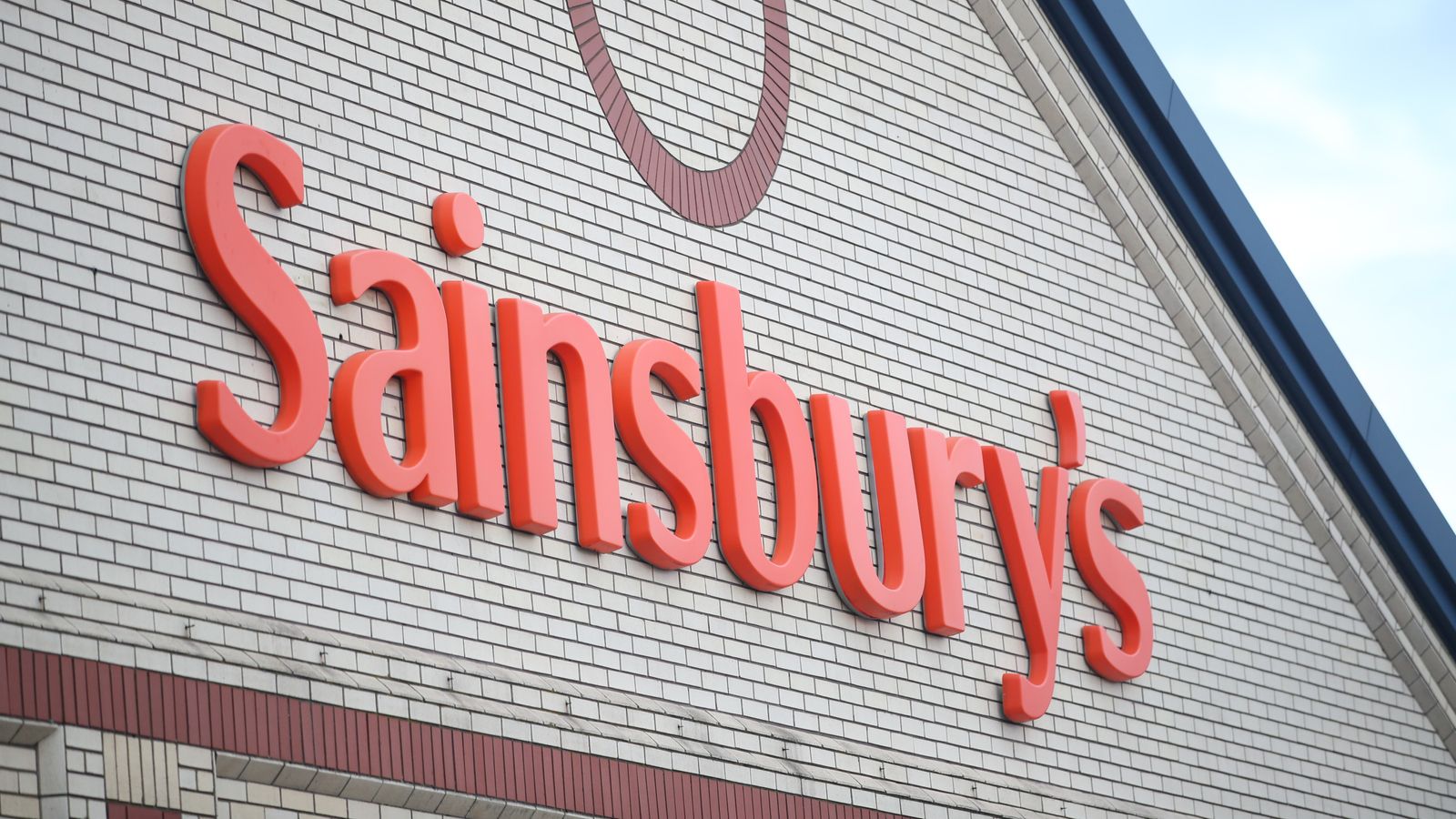- Location
- Mendips Somerset
Not much mention of farmers and investing in the supply chain !
Claire Hughes, Head of Quality and Innovation, Sainsbury’s
Since its creation 150 years ago, Sainsbury’s has been a pioneer of innovation and a trailblazer for introducing new food in the UK. Starting with the ‘humble stick of butter’, and we now offer thousands of products available today. We have always been at the forefront of introducing new food to the nation, turning once ‘niche’ items into everyday products. From introducing speciality cheeses such as Gorgonzola and Camembert in 1880, to becoming the first British supermarket to introduce the avocado in 1962, which we now sell more of than oranges. In 1969, fresh croissants were no longer just a thing of speciality bakeries when they were introduced to Sainsbury’s stores, while 1972 saw a range of good-quality wines hit the shelves – ready to be picked up alongside a pint of milk.
Sainsbury’s has also been central to informing how we think about the food we eat today by adding nutritional information to products in 1961 – and becoming the first to introduce the ‘traffic light’ healthy eating system to the front of packaging in 2005. Not only has Sainsbury’s pioneered what we eat, the supermarket has also been a major driver behind how we source food. From being the UK’s leading retailer of RSPCA assured products, to setting up innovative farming groups and establishing a sustainable supply chain today and into the future. The world has changed immeasurably over the last 150 years and our eating habits, technology and the way we source our food has continuously evolved alongside it. By looking at the macro trends, scientific studies and heightened environmental awareness already developing today, we can start to explore how our food could start to change in the future and what that might mean for our customers.
This Future of Food Report paints a picture of life in 2025, 2050 and 2169, showing the potential role of food for our customers - and the potential role of our customers for our food - in the next 150 years. In five years’ time, alongside medication, our doctors could be incorporating food advice as health prevention techniques to help alleviate our ailments. Sainsbury’s has Foreword already started to help out customers with boosting nutrients through the launch of our Super Mushrooms - containing Vitamin D and B12 - and there is great potential for bio-fortification foods to become much more common on our shelves. Driven by unprecedented awareness of animal welfare, health concerns and ecoanxiety, more of us than ever could be putting the planet first when writing our shopping list.
It’s expected that a quarter of all British people will be vegetarian in 2025 (up from one in eight Britons today) and half of us will identify as flexitarians (up from fifth today). Sainsbury’s alone has already seen a 24% increase in customers searching for vegan products online, and a 65% increase in sales of plant-based products year-on-year, as customers increasingly consider a vegan, vegetarian or flexitarian lifestyle. In thirty years, jellyfish and other ‘invasive species’ could be found on the fish counter as recent research has found them to be full of nutrients and vitamins. And we could even be introducing a ‘lab-grown’ aisle, where people can pick up cultured-meats and kits to grow meat at home.
Meat, as we know it today, could instead start to become a luxury product. We could start to see a very different food landscape in 150 years’, as scientists may well be farming in space and sending back their learnings to us on Earth. This would be instrumental to us being able to farm on land which was previously barren - providing us with seasonal produce all year round. With developments in technology happening every day there are endless possibilities for how we could be consuming our food in the future. It’s likely that we’ll be consuming our key nutrients through implants. While nutrition patches and drips could replace our day-to-day intake, traditional celebrations - birthdays, family occasions - could be bigger and better than ever before, with the aesthetics of food strengthening the bonds of community. Sainsbury’s will continue to play a crucial role in expanding the nation’s diets and palates, over the next 150 years.
Claire Hughes, Head of Quality and Innovation, Sainsbury’s
Since its creation 150 years ago, Sainsbury’s has been a pioneer of innovation and a trailblazer for introducing new food in the UK. Starting with the ‘humble stick of butter’, and we now offer thousands of products available today. We have always been at the forefront of introducing new food to the nation, turning once ‘niche’ items into everyday products. From introducing speciality cheeses such as Gorgonzola and Camembert in 1880, to becoming the first British supermarket to introduce the avocado in 1962, which we now sell more of than oranges. In 1969, fresh croissants were no longer just a thing of speciality bakeries when they were introduced to Sainsbury’s stores, while 1972 saw a range of good-quality wines hit the shelves – ready to be picked up alongside a pint of milk.
Sainsbury’s has also been central to informing how we think about the food we eat today by adding nutritional information to products in 1961 – and becoming the first to introduce the ‘traffic light’ healthy eating system to the front of packaging in 2005. Not only has Sainsbury’s pioneered what we eat, the supermarket has also been a major driver behind how we source food. From being the UK’s leading retailer of RSPCA assured products, to setting up innovative farming groups and establishing a sustainable supply chain today and into the future. The world has changed immeasurably over the last 150 years and our eating habits, technology and the way we source our food has continuously evolved alongside it. By looking at the macro trends, scientific studies and heightened environmental awareness already developing today, we can start to explore how our food could start to change in the future and what that might mean for our customers.
This Future of Food Report paints a picture of life in 2025, 2050 and 2169, showing the potential role of food for our customers - and the potential role of our customers for our food - in the next 150 years. In five years’ time, alongside medication, our doctors could be incorporating food advice as health prevention techniques to help alleviate our ailments. Sainsbury’s has Foreword already started to help out customers with boosting nutrients through the launch of our Super Mushrooms - containing Vitamin D and B12 - and there is great potential for bio-fortification foods to become much more common on our shelves. Driven by unprecedented awareness of animal welfare, health concerns and ecoanxiety, more of us than ever could be putting the planet first when writing our shopping list.
It’s expected that a quarter of all British people will be vegetarian in 2025 (up from one in eight Britons today) and half of us will identify as flexitarians (up from fifth today). Sainsbury’s alone has already seen a 24% increase in customers searching for vegan products online, and a 65% increase in sales of plant-based products year-on-year, as customers increasingly consider a vegan, vegetarian or flexitarian lifestyle. In thirty years, jellyfish and other ‘invasive species’ could be found on the fish counter as recent research has found them to be full of nutrients and vitamins. And we could even be introducing a ‘lab-grown’ aisle, where people can pick up cultured-meats and kits to grow meat at home.
Meat, as we know it today, could instead start to become a luxury product. We could start to see a very different food landscape in 150 years’, as scientists may well be farming in space and sending back their learnings to us on Earth. This would be instrumental to us being able to farm on land which was previously barren - providing us with seasonal produce all year round. With developments in technology happening every day there are endless possibilities for how we could be consuming our food in the future. It’s likely that we’ll be consuming our key nutrients through implants. While nutrition patches and drips could replace our day-to-day intake, traditional celebrations - birthdays, family occasions - could be bigger and better than ever before, with the aesthetics of food strengthening the bonds of community. Sainsbury’s will continue to play a crucial role in expanding the nation’s diets and palates, over the next 150 years.
Attachments
Last edited:








